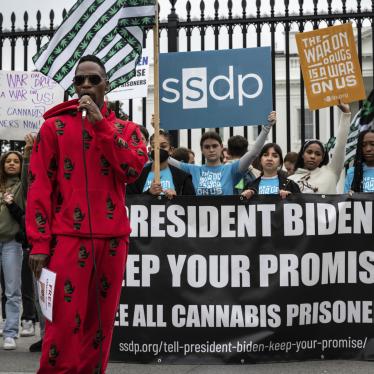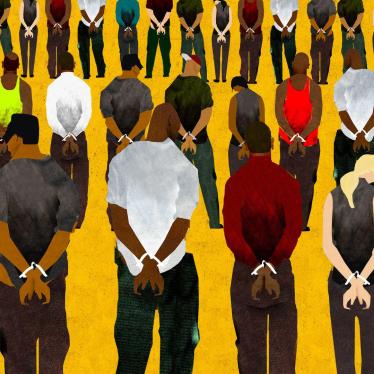For decades, US domestic drug policy has been focused on setting and enforcing harsh criminal penalties for drug offenses.
These policies have had a devastating impact on the lives and dignity of millions of people. The criminalization of personal use and possession of drugs infringes on personal autonomy and the right to privacy. The US has spent hundreds of billions of dollars to arrest and incarcerate drug offenders, including millions whose crime was merely possession of marijuana, as Jamie Fellner of Human Rights Watch has detailed. Stunning racial disparities in both arrest and incarceration of drug offenders persist. And the criminalization of the drug trade has generated huge profits for international criminal organizations responsible for large-scale violence and human rights abuses.
Yet, with rare exceptions (such as the reduction in cocaine sentencing disparities) federal policymakers have largely avoided questioning the status quo.
So it’s heartening that the US Senate Judiciary Committee will hold a hearing today on the conflict between federal and state laws on marijuana. The hearing comes on the heels of a Justice Department announcement that it will not interfere with states’ implementation of laws legalizing marijuana so long as they don't conflict with certain federal priorities.
The hearing should help to clarify the changes to the Justice Department's policies, including concerning persons who have in the past been prosecuted in relation to medical marijuana activities that complied with state law. But it's also an opportunity to move the discussion about drug reform further. Committee members should explore the possibility—referenced in the Justice Department's new policy guidance—that a regulated drug system, by reducing the power and wealth of criminal groups, may actually further federal priorities. And they should examine not just federal-state conflicts, but the harms done by federal laws themselves.
It’s well past time for the US to take a hard look at the very real human rights costs of current drug policies. Today’s hearing should be just the beginning.








